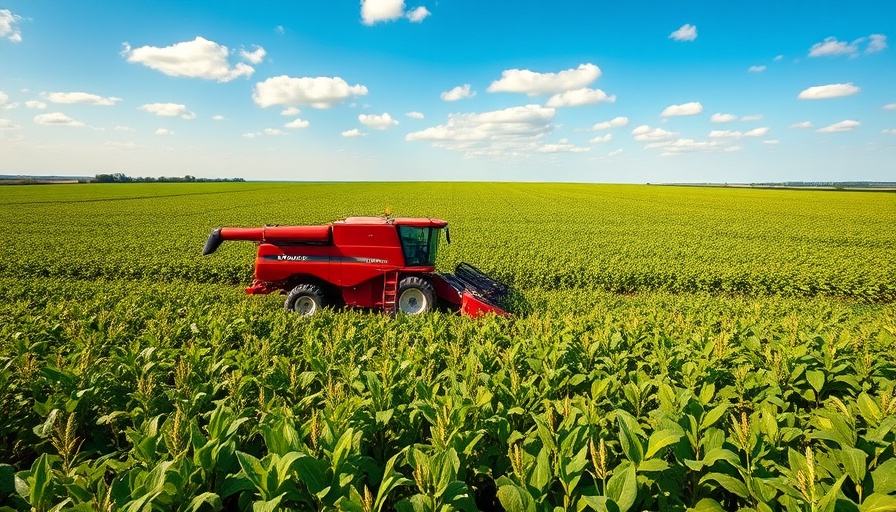
Building a Sustainable Future: How Iroquois Valley Leads the Way
The transition to organic and regenerative agriculture isn't just a trend—it's a necessity in today’s ever-changing environmental landscape. Farmers like Rex Wettstein from Illinois are partnering with Iroquois Valley Farmland REIT to turn this necessity into a viable and profitable opportunity. These partnerships offer a lifeline to multigenerational farms wrestling with the effects of climate change and the demands of a more health-conscious consumer base.
A Unique Investment Strategy for Farmers
Since its inception in 2005, Iroquois Valley has cleverly positioned itself in the real estate investment trust (REIT) landscape by focusing specifically on farmland that can be transitioned to organic farming practices. Currently boasting a stunning $126 million invested across 36,000 acres, they are reshaping how both investors and farmers view the future of food production.
What makes their model particularly engaging is the long-term relationships they build with farmers. "We view the relationship with our farmers as one of long-term partnership," says Chris Zuehlsdorff, CEO of Iroquois Valley. Their structured leases last six years and auto-renew for every two years after that, giving farmers a stable foundation to transition.
Bringing Real Change to Local Communities
This investment model is not just financial—it's transformative. By providing farmers with the necessary funding to obtain organic certifications, Iroquois Valley enables them to contribute actively to local food systems, improve soil health, and ensure food security. Every dollar invested is an investment in regenerative practices that take care of our planet.
Moreover, the benefits extend beyond just the farmers. Consumers increasingly desire sustainably sourced food, and by supporting Iroquois Valley's mission, they help create a healthier food environment for all. This is particularly relevant for today's eco-conscious shoppers eager to understand the origins of their food.
Renewable Energy: A Step Towards Holistic Sustainability
A significant addition to Iroquois Valley's operations is the incorporation of renewable energy into farming processes. As part of Rex Wettstein’s expansion, his farm aims to not only grow organic wheat, soy, and corn but also invest in renewable energy systems. This is an exciting step that embraces a holistic approach to farming—one that considers the environmental impact at every level.
The Bigger Picture: Why This Matters Now More Than Ever
As climate change accelerates, the urgency for sustainable practices grows. A report by the Food and Agriculture Organization of the United Nations highlights the importance of transitioning to sustainable agricultural systems to combat these global challenges. The timing of Iroquois Valley’s initiatives couldn’t be better, as there's a collective movement towards equity in food production and a conscious effort to enrich the soil rather than deplete it.
Empowerment Through Knowledge: Joining the Movement
As consumers, we all have a role to play in fostering sustainability and supporting systems that promote health-conscious practices. Engaging with local organic producers, understanding food labels, and voting for policies that protect our environment can create change. Want to dive deeper into this discussion? Stay informed about Iroquois Valley and their partner farmers, as they represent a growing segment of the agricultural industry committed to nurturing our planet and our health.
Call to Action: Invest in a Sustainable Future
As an informed consumer, your choices matter! Consider choosing organic products that support sustainable practices. Whether you are a farmer looking to transition or a consumer passionate about health and sustainability, joining this movement can make a real-world impact. Learn more about how Iroquois Valley is changing the farming landscape and explore how you can contribute to a more sustainable food system.
 Add Row
Add Row  Add
Add 




 Add Row
Add Row  Add
Add 

Write A Comment